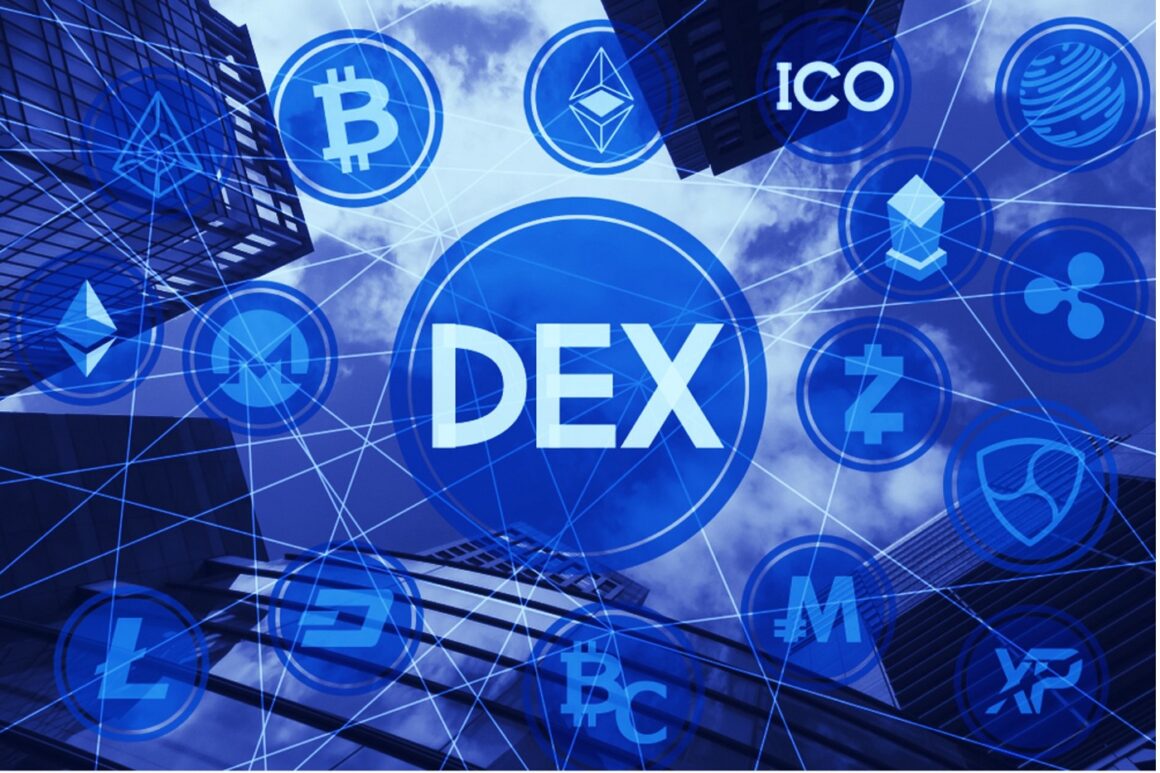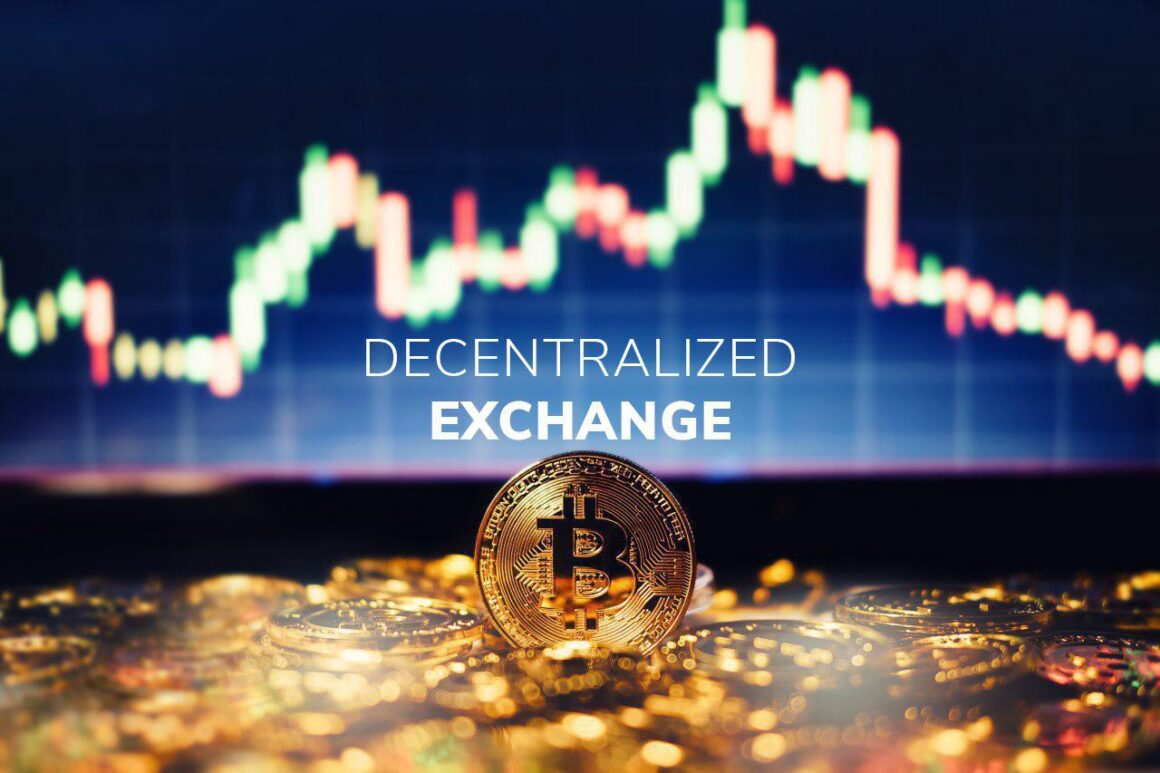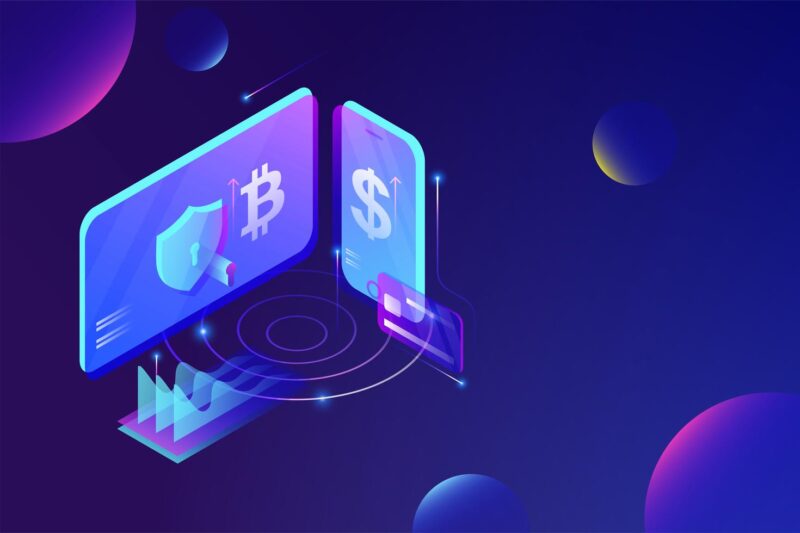If you’re looking to start trading cryptocurrencies, you’ll need to use a decentralised exchange. In this guide, you will understand what decentralised exchanges are and how they work. This post will cover the advantages of using a decentralized exchange (DEX) and the available decentralised exchanges types.
History of Decentralised Exchanges

The first decentralised exchange was created in 2014 by Ripple, a company that provides blockchain technology for banks. The exchange, called BitShares, was designed to allow users to trade cryptocurrencies without the need for a third party. Blockstream, a bitcoin startup, later acquired BitShares.
In 2016, another decentralised exchange called EtherDelta was created. EtherDelta allowed users to trade Ethereum tokens and was the first exchange to support the ERC20 token standard.
What Are Decentralised Exchanges?
Decentralised exchanges (DEXes) are cryptocurrency exchanges that do not rely on a third party to hold users’ funds. Instead, trading is conducted directly between users through an automated process.
These exchanges are powered by decentralised ledger technologies such as the Ethereum blockchain and can be accessed through decentralised applications (dApps). This type of exchange is often seen as more secure than centralised exchanges, which have been prone to hacks.
In addition, exchanges often offer more privacy than their centralised counterparts, as they do not require personal information to set up an account.
Working of Decentralised Exchanges

A DEX typically works by matching the orders of buyers and sellers on a decentralised ledger. Once an order is matched, the trade is executed, and the respective tokens are transferred to the buyer’s and seller’s wallets.
They do not hold users’ funds, so there is no risk of theft from hacks. However, as decentralised exchanges are still a relatively new technology, there is a lack of liquidity on many exchanges, making it difficult to find buyers or sellers for specific trades.
Advantages of Decentralised Exchanges
The main advantages of using decentralised exchanges include:
–Better Security: As DEXes do not hold users’ funds, they are less susceptible to hacks. Furthermore, as Decentralised ledger technologies power exchanges, they are often more secure than centralised exchanges.
–Greater control over funds: As users hold their funds on a decentralised exchange, they have greater control over their money. This contrasts with centralised exchanges, where users must trust that the exchange will not mismanage or lose their funds.
–Increased Privacy: DEXes often do not require personal information to set up an account, increasing user privacy.
–Improved Decentralisation: Decentralised exchanges are powered by decentralised technologies such as the Ethereum blockchain and can help promote the decentralised cryptocurrency space.
Different Types of Decentralised Exchanges

There are a few different types of DEXes that are available:
-Automated Market Makers (AMMs)
Automated market makers, or AMMs, are computer programs that provide liquidity to digital asset exchanges. By automatically matching buy and sell orders from different traders, automated market makers help to ensure that prices remain stable. In addition to providing liquidity, AMMs can also help to reduce transaction costs. By matching buy and sell orders internally, automated market makers can eliminate the need for traders to pay fees to external market makers.
-Order Book Exchanges
Order book exchanges that allow users to trade digital assets directly with each other. Order book exchanges match buy and sell orders from different traders and execute the trades on a decentralised ledger. One advantage of using an order book exchange is providing more excellent price discovery than AMMs.
-Hybrid Exchanges
Hybrid exchanges are a type of DEX that combines the features of both AMMs and order book exchanges. Hybrid exchanges typically use an automated market maker to provide liquidity and allow users to trade directly with each other.
How to Choose a Decentralised Exchange

When choosing a decentralised exchange (DEX), there are a few factors that you should consider:
–Security: As decentralised exchanges are still a new technology, choosing an exchange with robust security protocols in place is essential.
–Liquidity: DEXes can often have low liquidity, making it difficult to find buyers or sellers for specific trades. Check the exchange’s liquidity before making any trades.
–Supported Assets: Not all exchanges support all types of assets. When choosing a DEX, check which assets are supported by the exchange.
–User Interface: As decentralised exchanges can often be more complex than centralised exchanges, choosing an exchange with a user-friendly interface is crucial.
Decentralised exchanges are still a new technology, and there is much room for improvement. As exchanges continue to grow in popularity, they could play a significant role in decentralising the cryptocurrency space. You can expect to see decentralised exchanges with more liquidity, more assets, and more user-friendly interfaces in the future.


